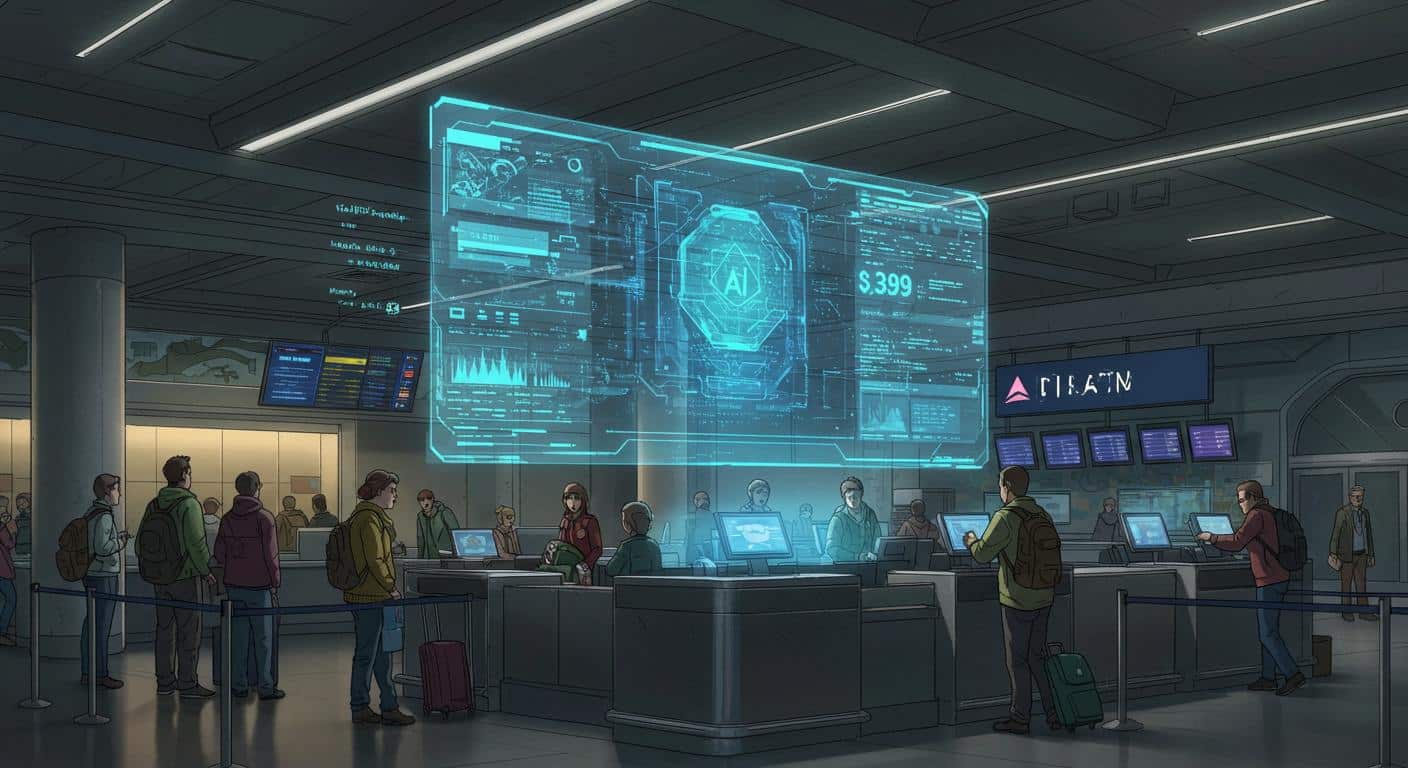If you get a queasy feeling booking a flight, suspecting that Delta Airlines somehow knows exactly how much you’re willing to fork over for a middle seat in row 25, you’re not just being paranoid. Delta has begun rolling out an artificial intelligence–driven pricing system, aiming to turn airfare into something deeply personal—possibly uncomfortably so. The age-old tradition of wondering how a family of four in matching T-shirts snagged a better deal than you for the same flight just got a digital upgrade. Now, the algorithm may actually know you splurged on coconut water at the airport an hour ago and price your ticket accordingly.
The Algorithm is Watching (Your Wallet)
Described as a “super analyst” by company president Glen Hauenstein, this AI tool isn’t just another flavor of dynamic pricing. As outlined in The Economic Times, Delta is using a system built by Israeli tech company Fetcherr, which analyzes a dizzying array of data—booking trends, your travel habits, and, possibly, the sort of purchasing decisions that make you, you—all with the goal of landing on your “maximum acceptable price.” It is, in Hauenstein’s words, a “full reengineering of how we price.” Not exactly a slogan for a cozy family business, but certainly one befitting a company testing new frontiers in targeted commerce.
In fact, Delta has already unleashed this pricing AI on 3% of domestic flights, planning to expand that number to 20% by year’s end, as the outlet reports. The pilot period will run roughly 18 to 24 months, according to details cited in The New York Post, during which Delta will presumably be searching for the sweet spot between profit maximization and customer mutiny. In a nice twist of optimism, executives claim the goal is to offer more “relevant” pricing to travelers. Relevant, of course, being in the eye of the algorithm.
Same Seat, Different Price, Endless Questions
The real magic (or mischief, depending on your view) comes from the AI’s ability to set different prices for the same ticket based not just on the usual suspects—demand, date, and how recently Mercury went retrograde—but rather your own behavior and, as some fear, your perceived “willingness to pay.” Reports from International Business Times highlight that Delta’s pricing engine tracks a customer’s every digital breadcrumb, from which device they’re using to data points that may include broader travel trends and even economic indicators.
Supporters argue this might actually be a boon for travelers—AI, so the hope goes, could provide cheaper fares on underbooked flights, rewarding early or low-demand bookings. Fetcherr itself claims a 9% revenue jump in test runs, which may sound thrilling for Delta’s accountants if not for your credit card statement. Meanwhile, Delta’s been quick to tout its continued top rankings for reliability and customer satisfaction—an interesting juxtaposition when the very definition of “customer satisfaction” may soon depend on whether the AI thinks you’re a cheapskate or a willing big spender.
Fairness, Transparency, and the Dreaded “Offer Management”
Naturally, not everyone is dancing down the jetway about all this innovation. IBTimes notes that critics have called the new model “predatory,” worrying that those identified as frequent flyers—or simply ones with looser purse strings—may see higher prices as a reward for their loyalty. Privacy advocates are concerned about the depth of data collection necessary for such personal pricing calculations, and several consumer groups have flagged the move as yet another layer of opacity in an already convoluted fare system. When the average traveler’s toolkit includes tactics like opening incognito tabs and searching from burner phones just to outfox the bots, you can sense how the trust gap is widening.
Delta, for its part, is leaning hard into the term “offer management,” in which individual offers are tailored uniquely to each consumer, on each flight, at each specific moment. Details noted in The Economic Times highlight that this is more than the old “supply-and-demand” game; it’s the much-heralded age of bespoke pricing grids, powered by a ceaseless digital analyst who never takes a coffee break.
Welcome to the Algorithmic Bazaar
Will this new digital bazaar mean cheaper tickets for some, and gold-plated seatbelts for others? No one inside or outside Delta seems ready to guarantee either scenario. Proponents say market efficiency is finally getting a turbo boost. Critics worry that “market efficiency” is airline code for, “We’ll take as much as you’ll give us, thank you very much.”
Delta insists it wants to “balance innovation with customer value,” as previously reported by IBTimes, though it remains to be seen if travelers agree on what constitutes value when their seatmate bought the identical ticket for a fraction of the price. With the airline industry moving toward this ultra-personal model—over 250 other airlines are reportedly experimenting with similar systems, per IBTimes—the simple pleasure of scoring a cheap flight looks poised for extinction, or at least a serious transformation.
Somewhere out there, the ghost of the posted fare chart is sighing.
So, as you blearily browse flights at 2am, maybe toggling between browsers or even switching devices to hunt for that mythical “lowest fare,” remember: Delta’s new AI might already know more about your willingness to pay than your own reflection. Is this the dawn of truly customized travel—or just a clever way to squeeze that last dollar out of your vacation budget? As usual, the algorithm will decide.







